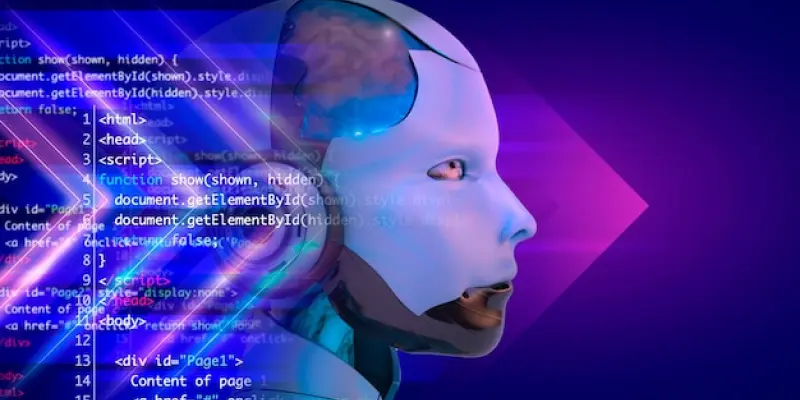In today’s rapidly evolving technological landscape, mastering basic coding and understanding artificial intelligence (AI) are no longer discretionary skills but essential components of education. As schools and parents recognize the need to equip children with tools for future success, integrating these skills into early education becomes critical. With technology dictating the rhythm of modern life, the opportunity to learn coding and AI at a young age presents a transformative chance for students to gain a competitive edge. Platforms designed to teach coding and AI are emerging as pivotal educational tools, offering children the necessary foundation to flourish in tech-driven environments. These platforms are not merely instructional but are crafted to engage young learners by integrating gamified learning, fostering creativity, logic, and problem-solving aptitudes. The aim is to make tech education enjoyable and compelling, laying the groundwork for technological literacy that will be vital in the current and future job markets.
Engaging Platforms for Young Coders and Innovators
Among the notable platforms, Scratch, Tynker, and Code.org stand out for their intuitive drag-and-drop interfaces that simplify coding for beginners. Their use of popular media themes facilitates an engaging learning experience, enabling young children to understand concepts like loops and conditions through relatable, interactive content. These platforms democratize tech education, emphasizing accessibility and the potential of gamified learning experiences. By transforming coding into interactive games and projects, they move beyond traditional methods, allowing children to experiment and learn in a stimulating environment. Moreover, platforms like WhiteHat Jr and Vedantu Super Coders offer personalized, live instructional sessions, where one-on-one guidance is provided. These real-time classes result in not only learning but also applying coding skills to develop applications, games, and AI models. Students receive direct feedback, aiding in a deeper comprehension of technology’s role in everyday life, thereby turning theoretical knowledge into practical application.
Integrating Robotics and Advanced Learning
For learners ready to venture into more complex aspects, platforms like RoboGenius and Arduino Education add a fascinating dimension by merging coding with robotics. This integration encourages students to explore hardware interaction and understand machine operations, blending software skills with tangible, real-world applications. Engaging with robotics allows children to see the immediate effects of their programming, prompting them to think critically and innovatively about machine behavior and operation. Additionally, mBlock introduces AI elements for older students, catering to those prepared for advanced learning. This platform aims to broaden students’ horizons, offering them insights into artificial intelligence and its applications, further stimulating curiosity and advanced study. By introducing these facets, children are equipped not only with programming skills but also with an understanding of AI and robotics. The educational value of these platforms lies in their ability to provide practical experiences, turning abstract concepts into understandable actions, preparing young learners to thrive in tech-centric fields.
The Global Push for Tech-Centric Education
The integration of coding and AI learning tools into educational curricula is gaining traction globally, with many schools adopting them as essential components for future skills readiness. This worldwide trend underscores the importance of equipping students with the ability to navigate complex technological challenges. By providing students with early exposure to coding and AI, educational institutions foster analytic thinking and innovation, crucial for modern careers. These platforms facilitate this by involving students in real-world projects, enhancing their understanding of technology’s practical applications. The immersive experience offered by coding and AI platforms ensures children are not just passive recipients of knowledge but active participants in learning, thereby fostering a profound comprehension of technology and its potential. As digital transformation accelerates, schools worldwide continue to adapt their curricula, integrating these platforms to support students’ tech literacy. Encouraging students to engage with these educational tools ensures they acquire skills necessary to thrive in a continuously shifting technological landscape.
Preparing for Future Opportunities
In the ever-changing world of technology, learning code and understanding artificial intelligence (AI) have become indispensable parts of education, rather than optional skills. Both schools and parents are increasingly aware of the importance of preparing children with the tools needed to succeed, making it crucial to incorporate these skills early on in their education journey. As technology shapes modern life, providing children the chance to learn coding and AI from a young age offers them a distinct advantage. Educational platforms focused on coding and AI have proven to be crucial, equipping youngsters to thrive in tech-centered landscapes. Not only do these platforms teach, but they also engage students by blending gamified learning, which nurtures creativity, logical thinking, and problem-solving skills. The overarching goal is to make tech education engaging and enjoyable, thus building the foundation for tech literacy, a necessary skill in today’s and tomorrow’s job markets, where digital proficiency is key.

